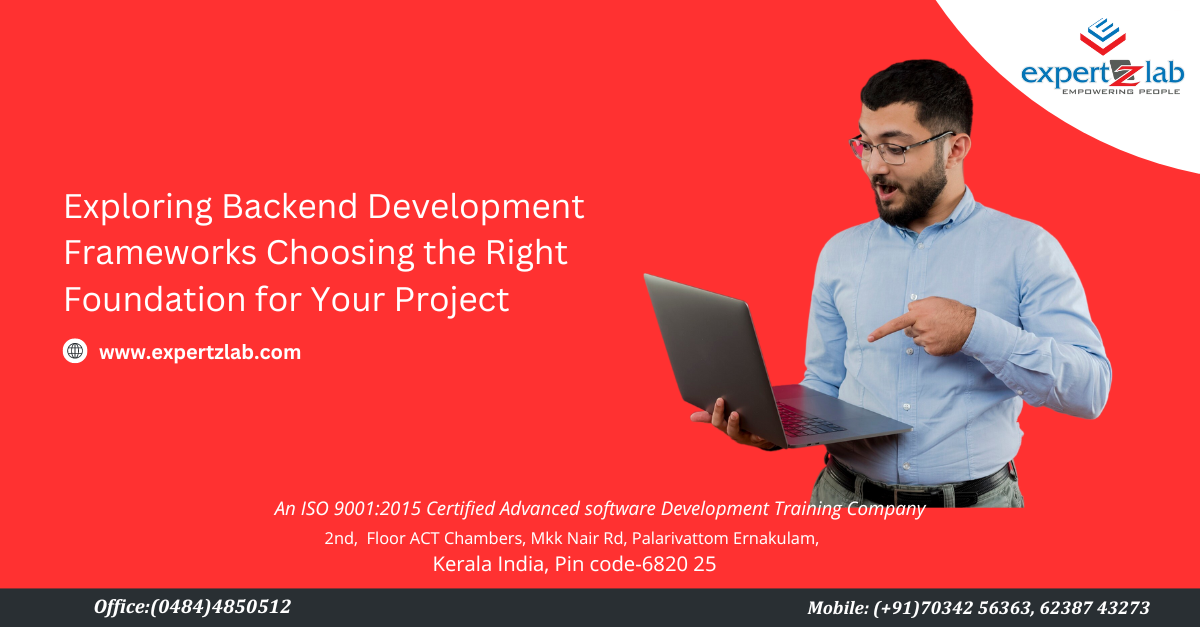In the world of software development, choosing the right backend development framework is crucial. These frameworks provide the foundation upon which robust, scalable, and efficient web applications are built. With a plethora of options available, each offering its own set of features, strengths, and weaknesses, developers often find themselves confronted with the daunting task of selecting the most suitable framework for their project. In this article, we'll explore some popular backend development frameworks, their key features, and factors to consider when making your choice.
What is a Backend Development Framework?
Before diving into specific frameworks, let's first understand what a backend development framework is. In simple terms, a backend framework is a collection of pre-written code, libraries, and tools that provide a structured approach to building the server-side logic of web applications. These frameworks typically handle tasks such as routing, database interaction, authentication, and request handling, allowing developers to focus on application logic rather than low-level implementation details.
Popular Backend Development Frameworks
- Django (Python): Django is a high-level web framework that encourages rapid development and clean, pragmatic design. It follows the "batteries-included" philosophy, providing built-in features for common web development tasks such as authentication, URL routing, and database management. Django's strong community support, extensive documentation, and scalability make it a popular choice for building web applications of all sizes.
- Express.js (JavaScript/Node.js): Express.js is a minimalist web framework for Node.js, designed to build web applications and APIs quickly and easily. It offers a lightweight, unopinionated structure that allows developers to customize their application architecture according to their specific requirements. With its middleware-based approach and a robust ecosystem of plugins, Express.js is ideal for building lightweight, fast, and scalable server-side applications.
- Ruby on Rails (Ruby): Ruby on Rails, often referred to as Rails, is a full-stack web framework optimized for programmer happiness and productivity. It follows the "convention over configuration" principle, emphasizing convention-based development patterns to reduce boilerplate code and speed up development. Rails provides a rich set of features for building database-backed web applications, including scaffolding, ActiveRecord ORM, and RESTful routing.
- Spring Boot (Java): Spring Boot is a powerful framework for building Java-based web applications and microservices. It simplifies the configuration and setup of Spring-based applications by providing auto-configuration, dependency injection, and opinionated defaults out of the box. With Spring Boot, developers can quickly create production-ready applications with minimal setup and configuration, leveraging the vast ecosystem of Spring projects and libraries.
- ASP.NET Core (C#): ASP.NET Core is a cross-platform, open-source framework for building modern, cloud-based web applications with C#. It offers a modular and extensible architecture that supports multiple hosting environments, including Windows, Linux, and Docker containers. ASP.NET Core provides built-in support for dependency injection, middleware pipeline, and WebSockets, making it suitable for building high-performance, scalable web applications.
Factors to Consider When Choosing a Backend Framework
When selecting a backend development framework for your project, consider the following factors:
- Programming Language: Choose a framework that aligns with your team's expertise and the requirements of your project. Each framework is associated with a specific programming language, so ensure that you're comfortable working with the chosen language.
- Community Support: Evaluate the size and activity of the framework's community, as it directly impacts the availability of resources, documentation, and third-party libraries. A vibrant community can provide valuable support and contribute to the framework's longevity.
- Performance and Scalability: Consider the performance characteristics and scalability capabilities of the framework, especially if you anticipate high traffic or complex application logic. Look for benchmarks, case studies, and real-world examples to gauge the framework's suitability for your project's requirements.
- Ecosystem and Integration: Assess the availability of plugins, extensions, and integrations that extend the framework's functionality and streamline development. Compatibility with other tools, services, and platforms can significantly impact your project's development workflow and ecosystem.
- Learning Curve: Take into account the learning curve associated with the framework, especially if you're introducing it to your team or transitioning from an existing technology stack. Look for comprehensive documentation, tutorials, and learning resources to facilitate onboarding and skill development.
Conclusion
Choosing the right backend development framework is a critical decision that can significantly impact the success and maintainability of your web application. By understanding the key features, strengths, and considerations of popular frameworks like Django, Express.js, Ruby on Rails, Spring Boot, and ASP.NET Core, you can make an informed decision that aligns with your project's requirements, team expertise, and long-term goals. Remember to evaluate factors such as programming language, community support, performance, ecosystem, and learning curve to ensure a smooth and efficient development process. With the right framework as your foundation, you can build powerful, scalable, and maintainable web applications that delight users and drive business value.
If you wish to learn more about advanced software development technologies and start a career in this field then come to Expertzlab. we are well prepared to deliver high-quality training for advancing your career. We offer training in Data Science with AI, Cloud Data Analytics & ML Engineering, Cloud Native Stack with Java Spring Microservices, Cloud Native Stack with Python Microservices, N4SA Stack with MEA[R]N & etc.
